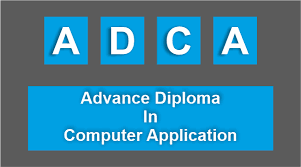Top 10 In-Demand Computer Courses in 2025 That Guarantee a High-Paying Job
17-Apr-2025

Associate Degree in Computer Applications, programs typically offer a comprehensive core curriculum designed to provide students with a solid foundation in various aspects of computer applications. While specific courses may vary depending on the institution, here's a general overview of what you might expect to find in the core curriculum of an ADCA program:
Introduction to Computers: This course usually covers the basics of computer hardware, software, and operating systems. Students learn about the components of a computer system, how they function, and their interrelationships.
Programming Fundamentals: An essential part of any computer applications program, this course introduces students to the fundamentals of programming logic, algorithms, and basic coding concepts. Depending on the program, languages such as Python, Java, or C++ may be covered.
Database Management Systems: Students learn about the design, implementation, and management of databases using systems like SQL. Topics typically include database modeling, normalization, querying, and basic administration tasks.
Web Development: This course covers the fundamentals of web technologies such as HTML, CSS, and JavaScript. Students learn how to create and design web pages, understand client-server architecture, and work with web development frameworks.
Operating Systems: This course delves into the principles and functions of operating systems like Windows, Linux, or macOS. Students learn about process management, memory management, file systems, and system administration tasks.
Networking Fundamentals: Students are introduced to the basics of computer networking, including network protocols, network topologies, IP addressing, and network security concepts.
Software Engineering: This course focuses on the principles and methodologies of software development, including requirements gathering, design principles, testing, and project management techniques.
Computer Applications in Business: Students learn how computers and software applications are used in various business contexts, such as accounting, finance, marketing, and human resources.
Cybersecurity Basics: An increasingly important area of study, this course covers fundamental concepts of cybersecurity, including common threats, encryption techniques, access control, and security best practices.
Ethical and Legal Issues in Computing: This course explores the ethical, social, and legal implications of computing technologies. Topics may include intellectual property rights, privacy concerns, and professional codes of conduct.
These are just some of the core courses you might find in an ADCA program. Depending on the specific program and institution, there may be additional elective courses or specialized tracks available to students as well.